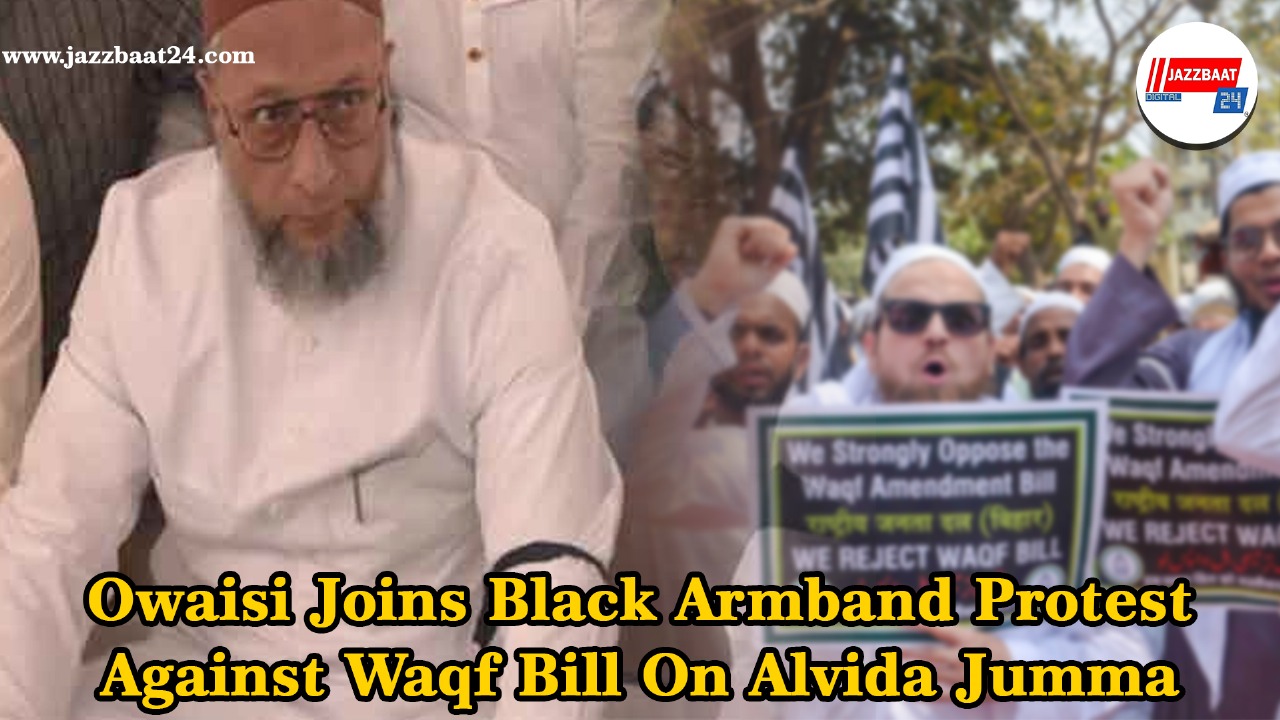
Hyderabad: Lok Sabha MP and AIMIM president Asaduddin Owaisi participated in a black armband protest on Alvida Jumma (the last Friday of Ramzan) against the Waqf (Amendment) Bill, 2024.
The protest, organized by the *All India Muslim Personal Law Board (AIMPLB)*, was widely observed throughout the country as Muslims wore black armbands during Friday prayers as a gesture of opposition to the bill.
Owaisi, who took part in the protest at Mecca Masjid in Hyderabad, criticized the bill, arguing that it might dilute the protection of Waqf properties and enable government intervention in their management.
Nationwide Protests Against the Bill
Demonstrations were witnessed in various cities, i.e., Lucknow, Delhi, and Mumbai.
In Lucknow, a member of AIMPLB Maulana Khalid Rasheed Farangi Mahli and members of other Muslim institutions also donned black armbands and pressed the government for withdrawal of the bill.
There was a considerable number of protesters at *Mecca Masjid* in Hyderabad where police presence was made in order to observe a peaceful march.
Issues Regarding the Waqf Amendment Bill
The Waqf (Amendment) Bill, 2024 seeks to amend the Waqf Act of 1995 . The government asserts that the amendments are designed to curb illegal encroachments, enhance transparency, and go digital. Yet, critics such as Owaisi and the AIMPLB point out that the bill has the potential to jeopardize the independence of Waqf institutions and result in government takeovers of mosques, dargahs, graveyards, and other Waqf assets.
AIMPLB members have called the bill a serious threatand demanded ongoing protests and legal action against it. They have demanded that the government negotiate with religious leaders and community representatives before bringing about any changes to the current law.
#Government's Stand and the Road Ahead
The government maintains that the bill is needed to prevent illegal occupation and misuse of Waqf properties.
Muslim leaders, however, feel the amendments would be used to acquire Waqf lands instead of saving them.
With debate on the bill still on in Parliament , opposition from Muslim groups and political figures such as Owaisi is likely to grow. Protests, court cases, and mobilization of the community are likely to persist in the weeks ahead.